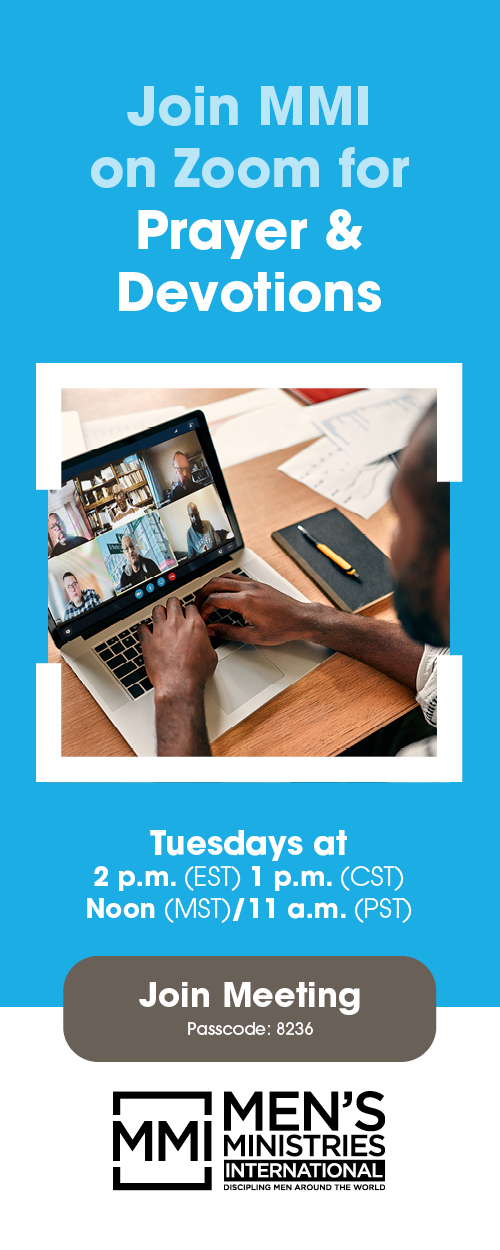
Michael Simmons
Michael Simmons is a Free Methodist elder in the Oregon Conference who serves as a spiritual director, retreat facilitator, speaker and writer helping people explore their “inner landscape” in order to cultivate healing and wholeness in their relationships to self, others and God. If you are interested in connecting with him, he can be reached at michael@innerworkcommunity.com or through the website innerworkcommunity.com.
by Michael Simmons
“Schism in the soul, schism in the body social, will not be resolved by any scheme of return to the good old days,” historian Arnold Toynbee wrote in the sixth volume of his “A Study of History” series. “Only birth can conquer death — the birth, not of the old thing again, but of something new.”
Our tendency with Advent is to look into the past for a way forward into the future, but Advent is first a death of our old ways. We wait, expectantly for Christ, for Immanuel, for God to be with us (Matthew 1:23). We bring our longings, our wounds and our traumas, and whether we know it or not, we bring our expectations for One who will save us.
We love the metaphor and image of the hero. From Rocky Balboa to Luke Skywalker, from Cinderella to Moana, from Odysseus to Frodo, we are drawn toward the ones who lift great burdens onto their shoulders, overcome insurmountable odds, or move from humble beginnings to a place of honor. Is this not how we think of Jesus? The prophet Isaiah described the Messiah to come as a Wonderful Counselor, a Prince of Peace, a Mighty Father, and one on whose shoulders the government will rest (Isaiah 9:6–7).
It is safe to say that first-century Jews were expecting a king, a righteous warrior and a hero of sorts. But “only birth can conquer death — the birth, not of the old thing again, but of something new.”
Metaphors and the Word
In Advent, we wait for a Savior whose name “is above every name” (Philippians 2:9), but we can only speak in metaphorical ways of a God whose “greatness no one can fathom” (Psalm 145:3). The metaphors we use impact how we relate to God. Do you call God a Counselor, King, Mother, Father or Savior?
Is even the name “God” a metaphor? The original pronunciation for the Hebrew word YHWH was lost after Jews viewed this word for God as too holy to be said aloud. In the words of Catholic priest and author Richard Rohr, “Some would say that the name of God literally cannot be ‘spoken,’ only breathed.”
Literature professor Joseph Campbell wrote that “the metaphors of one historically conditioned period … may not speak to the persons who are living long after that historical moment” with different generations “formed through altogether different experiences.”
“The Word became flesh and dwelt among us” (John 1:14 NKJV), and the Word must be enfleshed in our time, our historical moment, and incarnated in our metaphors.
Jesus Our Initiator
Jesus said many things to us. Things like, “No one can see the kingdom of God unless they are born again” (John 3:3). Or “I am the way and the truth and the life. No one comes to the Father except through me” (John 14:6).
These verses offer us images and the language of initiation. I define initiation as any process, ritual or life event whereby a person is transformed or begins a journey of transformation. Jesus’ entire life is one of initiation, and it is this life He is inviting us into. “Whoever wants to be my disciple must deny themselves and take up their cross and follow me” (Matthew 16:24).
Campbell also wrote that initiation is “distinguished by formal, and usually very severe, exercises of severance, whereby the mind is radically cut away from the attitudes, attachments, and life patterns of the stage being left behind.” Paul pens it this way, “Therefore, if anyone is in Christ, the new creation has come: The old has gone, the new is here” (2 Corinthians 5:17).
Truly, Jesus is both our Savior and our Initiator, but whereas salvation pulls us out of something, initiation draws us into something. We require both, but we are profoundly transformed into the image of Christ by experiences of loss, separation and disorientation. To be human is to be plunged into initiation, and it’s hard to know how to draw close to a Savior if “saved” is the last thing we feel. We need an Initiator who knows the path, who is The Path, a Good Shepherd (John 10:11) who walks with us in the shadows (Psalm 23:4).
Our initiation in Advent separates us from the good old days of the past and the glory days of the future, and Christ our Initiator stands ready to guide us toward new life, “not of the old thing again, but of something new.”
Reflection
What metaphor for God feels dead and lifeless to you? Is there a new metaphor bubbling up?
Where is life initiating you? What does the metaphor of Jesus as Initiator offer you? +

Michael Simmons
Michael Simmons is a Free Methodist elder in the Oregon Conference who serves as a spiritual director, retreat facilitator, speaker and writer helping people explore their “inner landscape” in order to cultivate healing and wholeness in their relationships to self, others and God. If you are interested in connecting with him, he can be reached at michael@innerworkcommunity.com or through the website innerworkcommunity.com.









